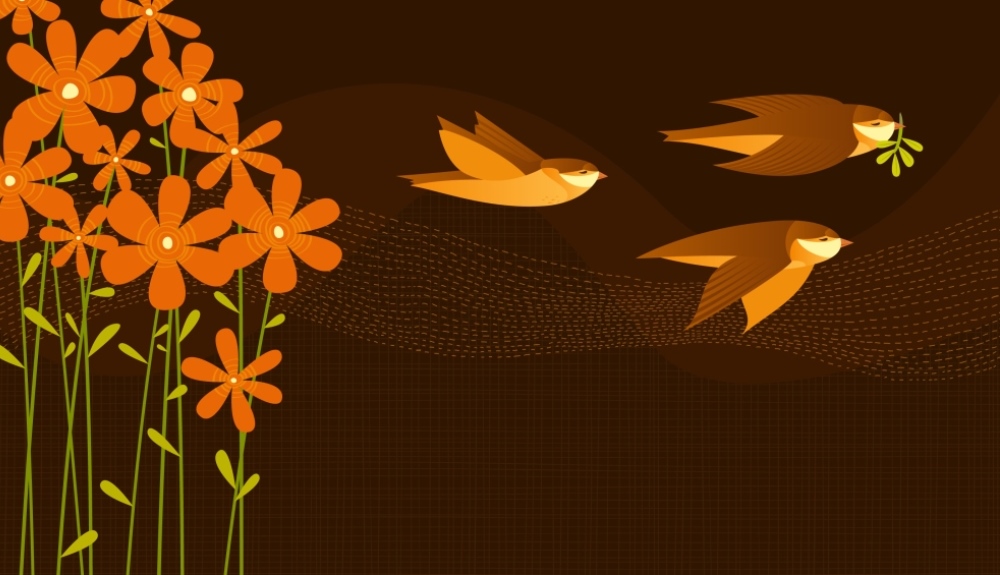
I was something of an accidental mother. I don’t mean that in the old traditional whoops! way; it’s just that while I barreled through my 20s convinced that having a baby would be like carrying a really large and inconvenient tote bag that I could never put down, I awoke one day at thirty and, in what now seems an astonishingly glib leap of faith, decided I wanted that tote bag in the very worst way. It was as though my ovaries had taken possession of my brain. Less than a year later an infant had taken possession of everything else. My brain no longer worked terribly well, especially when I added to that baby another less than two years later, and a third fairly soon after that.
That was twenty years ago. You do the math. The first one went to China to polish his Mandarin. The second left for college in the fall. I still have a chick in the nest, and what a chick she is; but increasingly it feels like an aerie too large for its occupants. Recently I told her we were going to be doing something we had always done as a family. “We don’t have that family anymore,” she said. (Here I pause to remove the shiv from between my ribs, breathe deeply and smile.)
Tell me at your peril that the flight of my kids into successful adulthood is hugely liberating, that I will not believe how many hours are in the day, that my husband and I can see the world, that I can throw myself into my job. My world is in this house, and I already had a great job into which I’d thrown myself for two decades. No, not the writing job—the motherhood job. I was good at it, if I do say so myself, and because I was, I’ve now been demoted to part-time work. Soon I will attain emerita status. This stinks.
I wonder if this has a particular edge for the women of my generation, who found themselves pursuing mothering in a new sort of way. We professionalized it, and in doing so made ourselves a tiny bit ridiculous and more than a little crazy. Women who left their children in the care of others to work for pay often wound up, by necessity and habit, scheduling their mother life as they did their working one. (See us logging teacher conferences into our PDAs in the parking lot of the preschool.) Women who eschewed the job market despite the gains of women within it sometimes wound up making motherhood into a surrogate work world, full of school meetings and endless athletic teams. (See us chairing bake sales even though it would be cheaper to write a check than to make brownies.) For both groups, the unexamined child was not worth having: from late crawling to bad handwriting to mediocre SATs, all was grist for the worry mill. Motherhood changed from a role into a calling. Our poor kids.
The end result is that the empty nest is emptier than ever before; after all, at its center was a role, a vocation, a nameless something so enormous that a good deal had to be sacrificed for it, whether sleep or self or money or ambition or peace of mind. Those sacrifices—or accommodations, for those of us waxing poetic about their end—became the warp and woof of our lives; first we got used to them and then before we knew it they had become obsolete. Those of you waiting for your babies to sleep through the night will be amazed how quickly they come to sleep through the afternoon after a night out.
For years I wrote only between the hours of 9 and 3, when the children were at school. (God forbid they should actually see me work.) Now that two of the children live at school and one has play rehearsal, basketball games and random hanging-out when school is done, I still write only between the hours of 9 and 3. It has become my routine; I did not choose to change it. In the kitchen is a magnet that says MOM IS NOT MY REAL NAME. See our heads snap up in the supermarket when someone yells the word, as surely as our milk once let down when we heard a baby, any baby, cry.
Much has been written about the pernicious nature of having it all, the perfection syndrome required of women who must play so many roles in the lives of others, jamming loving obligations into days that feel too short, discussing endlessly how to balance work and home. But many of us eventually ratcheted up our metabolisms accordingly. First overfull was a cross, then a challenge, eventually a commonplace. Anything less is empty.
It’s not simply the loss of these particular people, living here day in, day out, the bickering, the inside jokes, the cereal bowls in the sink and the towels in the hamper—all right, on the floor. It was who I was with them: the general to their battalion, the president to their cabinet. The Harpo to their Groucho, Zeppo and Chico. Sometimes I go into their rooms and just stand, touching their books, looking out their windows. “The shrine,” the youngest says derisively, although she misses the other two as much as I do. But she has her own plans, has one eye now on the glitter past the window glass. At the end of the month she heads Down Under on a six-week school exchange, leaving the bulletin board, the photograph albums and the wallpaper with butterflies on it behind. And me, of course. Three rooms empty, full of the ghosts of my very best self. Mom is my real name. It is, it is.